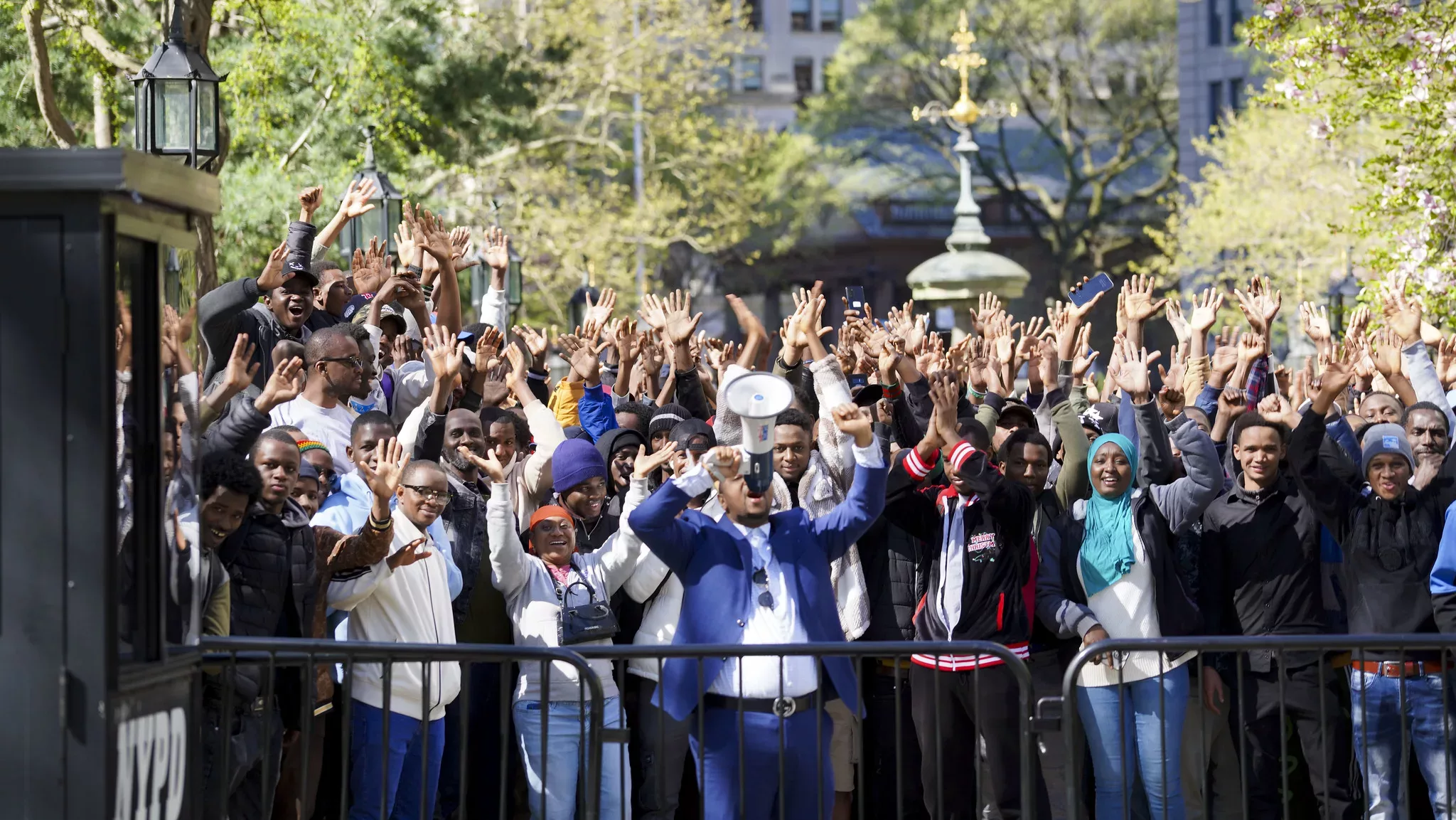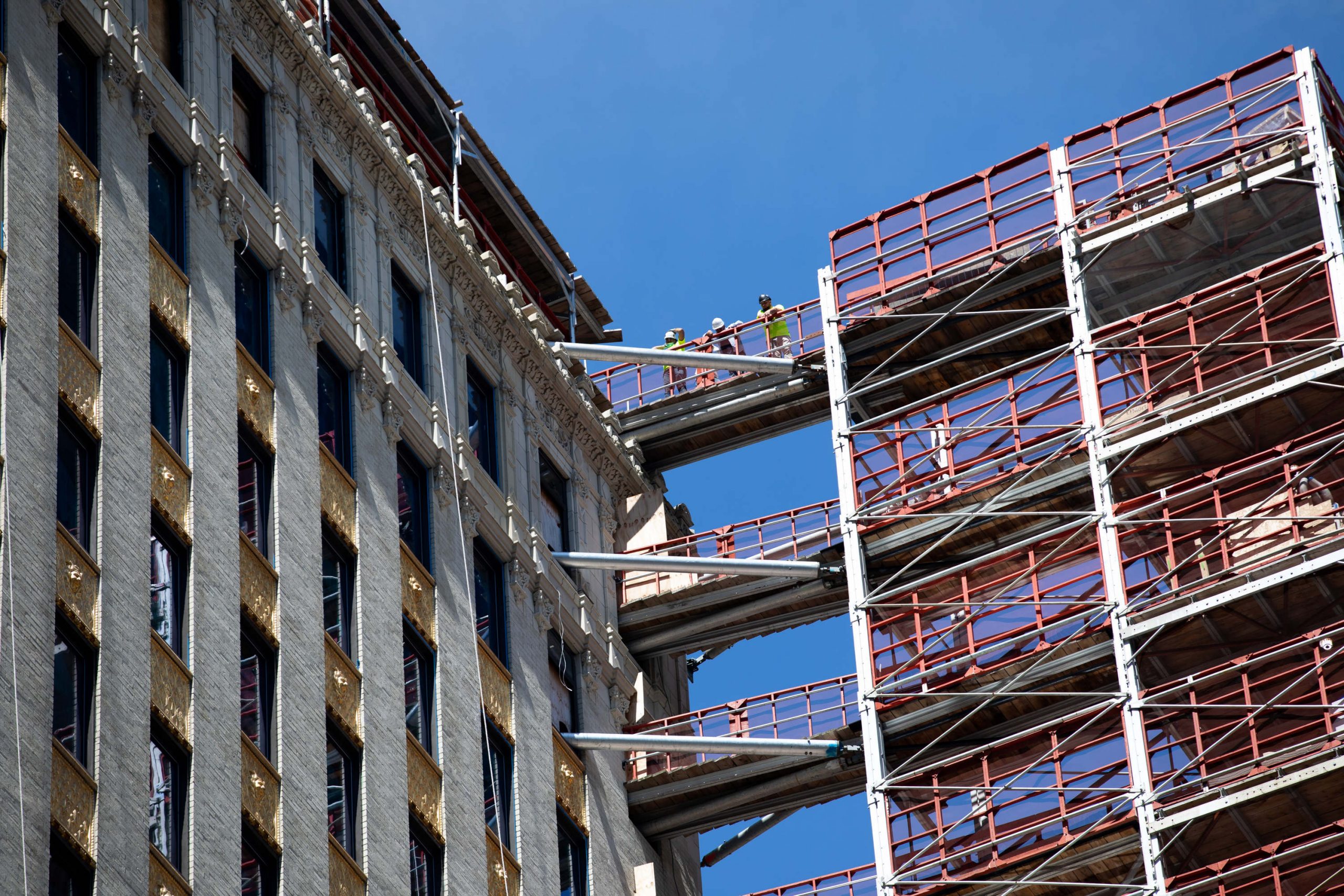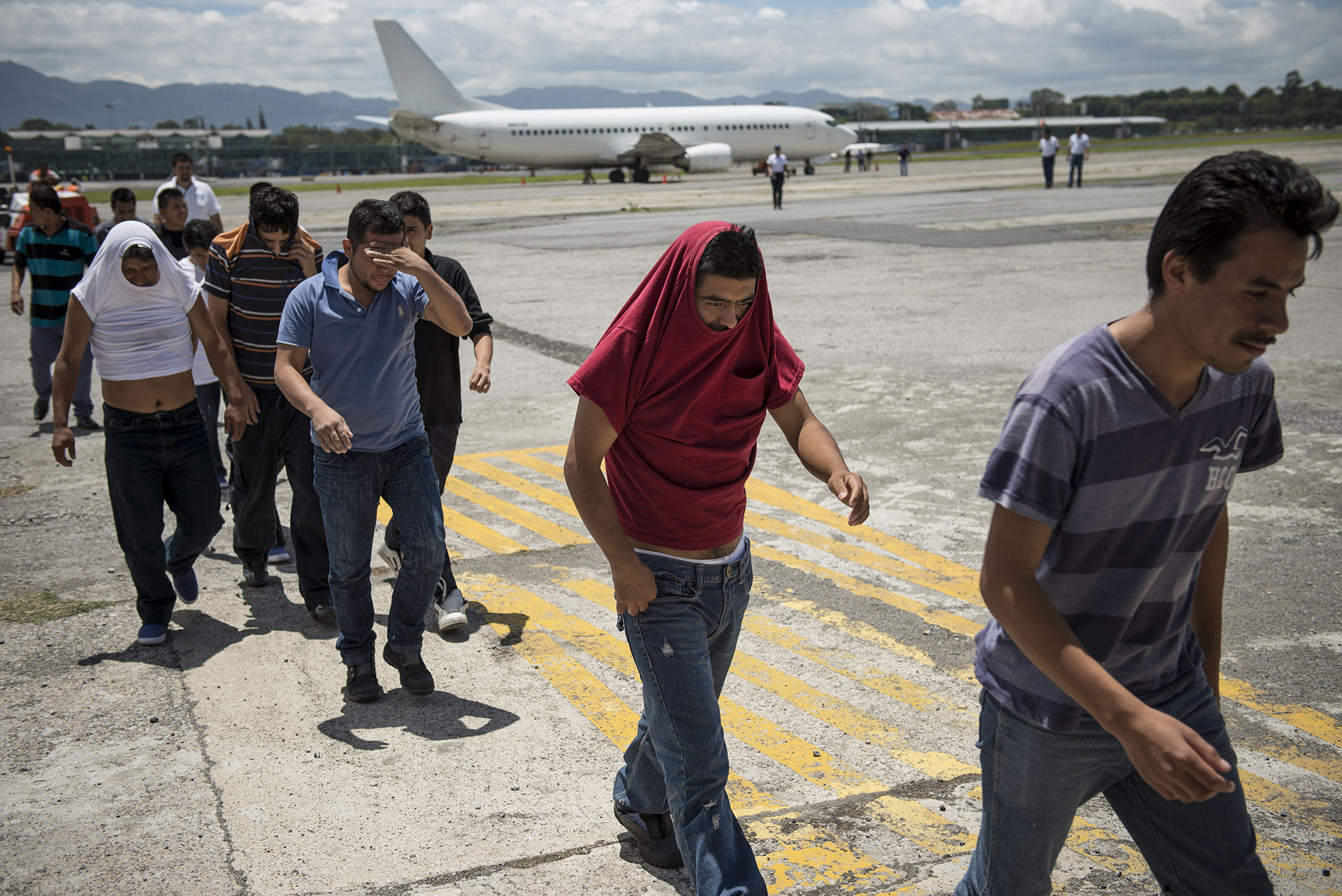More than 1,000 migrants showed up Tuesday at City Hall Park to share the challenges they have faced as Black asylum seekers in the shelter system. They traveled to City Hall to ensure their voices were heard while elected officials and immigrant advocates testified inside the council chamber about the experiences of newly arrived Black migrants living in city facilities. Migrants Documented spoke with discussed the difficulties posed by shelter limit stays, which require them to reapply for shelter every 30 or 60 days, and the obstacles they’ve encountered in obtaining work permits.
“The situation is complicated,” said Mamadou Barry, a 31-year-old migrant from Guinea who has been in New York for about four months with his wife and is currently staying on Randall’s Island. Speaking in French, Barry said he wanted to come to the rally to share that obtaining his work permit was his and other migrants’ top priority and that he has had to reapply for shelter multiple times.
“After one month, they [the city] tell you to leave. You have to change shelter, that’s not easy,” Barry said as he sat with his extended family outside of City Hall Park on Tuesday morning. “We don’t have a stable place…There are a lot of people who are there [in the shelters] and can’t work.”
Also Read: Are Asylum Seekers Illegal? Migrants in the U.S., Explained
Many of the migrants who Documented spoke with outside City Hall said they were from Guinea and had arrived in New York in the past six or so months. Some said they tried to enter City Hall before the hearing, but the building quickly reached capacity. Migrants learned of the rally through their mosques and local organizations that have assisted them, they said.
Since the spring of 2022, more than 190,000 newly arrived migrants have passed through the New York City shelter system, and the over 200 emergency shelters that opened in response. During the hearing, City Council members praised nonprofits, mutual aid groups, and faith-based facilities such as mosques for supporting the large community of Black migrants, who are largely from West Africa, who have arrived in New York over the past two years.
Many of these organizations do not have government funding, as several elected officials highlighted. But Council members also urged the city to provide more services to migrants directly and to the groups helping them so that these groups would not have to shoulder the responsibility of providing crucial resources to migrants without government support.
On Tuesday morning, New York City Council Speaker Adrienne Adams announced the members of the “New Arrivals Strategy Team,” a group of immigrant New Yorkers, nonprofit leaders, ex-city government leaders and others. The council said in a statement that the aim of the team was to “improve the overall response to the recent immigration of our newest New Yorkers by developing solutions that promote their successful integration and economic contributions to communities across the five boroughs.”
Alexa Avilés, the chair of the City Council’s committee on immigration, said it was “incumbent” on the city to help migrants find pathways to work authorization, legal resources, and information in their native languages — including Wolof, Bambara, French and Arabic — among other resources. According to public reports, Avilés said, the 30- and 60-day shelter limits imposed by the city have disproportionately evicted African migrants, particularly migrants from Mauritania and Senegal.
“After today, the government cannot claim it did not know of the gaps and their profound impacts on people,” Avilés said. “We must do better.”
Adama Bah, the executive director of Afrikana, a nonprofit organization assisting newly arrived Black and Arab migrants, testified at the hearing that the city has failed to provide “adequate” language interpretation or workforce training for Black migrants. Afrikana has been providing case management, language support, transportation, and a myriad of other resources without government funding, Bah said. Bah called on City Council members to “hold the Mayor’s Office accountable to New York City’s constitution and protect and promote the dignity and respect for Black migrants, and all migrants in New York City.”
At the hearing, Manuel Castro, the commissioner for the Mayor’s Office of Immigrant Affairs (MOIA), said that a priority has been calling on the federal government to designate several African countries for TPS status and cited different city initiatives for language access and MOIA’s asylum efforts through contracts with nonprofits. Castro referenced the hundreds of migrants standing in and outside of City Hall and said that the showing was a “testament to community leaders and to immigrants who despite the fear and anxiety of coming out to such events, are willing to uplift their voice and fight for change.”
Diallo Ciré, 22, sat on a bench in City Hall Park on Tuesday, and said she came to the rally to advocate for a working permit and TPS for members of her community. “Without a job, it’s impossible,” Ciré said in French. “We live here, but we can’t work…We need to eat, we need to nourish ourselves, we need to find shelter.”
Ciré is from Guinea, and has been in New York for about four months. She heard about the rally through the mosques she attends. Without money to pay for her own apartment because of a lack of work, she has sometimes slept at these mosques, in the apartments of acquaintances, and in the shelter system. “I don’t have a set place to stay,” she said. “I live all over the place.”
Molly Schaeffer, the director for NYC Office of Asylum Seeker Operations, said that the city has set up a faith bed sheltering program, partnering with houses of worship to provide shelter — for migrants like Ciré — but called it “slow-going,” due to a “high regulatory burden” to make sure migrants in those sites are safe. While questioned about the office’s partnerships with community groups, Schaeffer said the city was looking into ways to “get more resources to the groups doing this work.”
Schaeffer acknowledged to the City Council that it had been difficult to recruit staff that were trained in languages like Wolof and Fulani. About 81% of migrants from African countries in city care were single adults, or adult families. At the city’s asylum application help center, approximately 16% of asylum applications worked on there have been for people from African countries, which Schaeffer said was “aligned” with the percentage in the city’s shelter system. Currently, the city is giving a bed to any migrant who needs one within 24 hours, Schaeffer said.
“We want to make sure that we are adequately resourcing the community as best as possible to absorb people,” Schaeffer said. “That is not our intention, for people to sleep on the streets.”
When Mayor Eric Adams was asked about the migrants rallying outside of City Hall about their experiences in city shelters, he told THE CITY, “We all feel that no one should be in this environment,” adding, “Say to Republicans, say to the federal government: Let’s give New York the support and allow people to work.”














